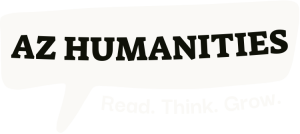Winkelman is located in southern Gila County in central Arizona, where the San Pedro and Gila Rivers meet. The Gila River hooks around the eastern and southern sides of town on its way to the west, and the San Pedro River flows north from the Mexican border. Aravaipa Creek is another important waterway, a rare perennial stream that supports a lush riparian habitat. The mountainous terrain is laced with ephemeral creeks and dry washes that come alive when it rains.
Exhibits and Talks
Central Arizona College’s Aravaipa Campus is proud to host the Smithsonian traveling exhibit Water/Ways, a look at the history and science of water in the United States. While the Smithsonian exhibit is at Central Arizona College’s Aravaipa Campus in May and June of 2019, they are celebrating with companion exhibits and programs.
Pacific Spins Casino offers an exciting online gaming experience that caters to both new and seasoned players. With a vibrant theme and a user-friendly interface, it quickly captures the attention of those looking for adventure in the world of online gambling. The casino showcases an impressive library of games, including slots, table games, and live dealer options from some of the leading software providers in the industry.
One of the standout features of Pacific Spins Casino is its generous welcome bonus package, which provides new players with a great incentive to start their gaming journey. Additionally, the casino offers various promotions and loyalty rewards to keep players engaged.
When it comes to payment options, Pacific Spins Casino supports a variety of reliable methods, ensuring smooth transactions for deposits and withdrawals.
For an in-depth look at this casino, including specifics on gameplay and bonuses, check out their detailed insights at https://bet-dc.com/. Overall, Pacific Spins Casino stands out as a solid choice for anyone seeking thrilling online gaming.
Thursday, May 16 from 1:00 PM to 2:00 PM
Managing Land for Water in the Southwest: Realities & Changes in a Changing Climate with Chris Jones and Paul Buck
This presentation will focus on ecological restoration and other land management activities, both natural and anthropogenic, which have direct and indirect impacts to water runoff and capture within different biomes and locations within their watersheds. The adaptation and use of multiple management techniques, including application and timing, is crucial to their success when coping with the climactic changes occurring in the desert southwest, specifically on the San Carlos Apache Reservation.
Paul J. Buck, Supervisory Soil Conservationist, San Carlos Apache Tribe. I studied Agronomy at Iowa State University, then accepted my current position with the Tribe in July 2004. I have worked on projects such as riparian restoration, post-fire rehabilitation, erosion control, grassland savannah restoration, as well as managed the Tribal Farm for several years. I am also involved in environmental planning and NEPA coordination on the Reservation. Personally, I am a musician, volunteer music teacher, and community theater actor.
Thursday, May 30 from 1:00 PM to 2:00 PM
Three-Part Presentation: Water; Water & Early Cultures; Water & Western Settlement with Len Marcisz
This three-part presentation explains the nature of water, the water cycle, flora and fauna water dependency, water use in arid environments, the evolution of water use by ancient cultures, and the various developmental, legal, social, political and economic issues attendant to water use during the period of US settlement in Arizona.
Leonard Marcisz currently serves on the Board of Directors of the Arizona Historical Society, a state agency responsible for the management of 16 state historical properties and museums. He served as President of the Society in 2014-2015. Marcisz has also served as Vice Chairman of the City of Scottsdale’s Historic Preservation Commission. He served on the Board of Directors of the McDowell Sonoran Conservancy from 2005 through 2011, and is a former Chairman of the board. His articles regarding the history of the McDowell Mountains have appeared in several local periodicals, and his research has been quoted or footnoted in several archaeological and historical books and papers. He is the scriptwriter and moderator for the Scottsdale City Cable Channel 11 historical series “Scottsdale Yesterdays.” He also leads themed desert hikes for the Fountain Hills Conservancy and McDowell Sonoran Conservancy on subjects of local history and ethnobotany. He recently completed the recording of a three part series about Arizona water issues for Arizona State University, where he has served as an occasional guest lecturer.
Thursday, June 6 from 1:00 PM to 2:00 PM
Project Harvest: A Co-Created Environmental Health Citizen Science Program in Rural & Urban Arizona Communities with Dr. Monica Ramirez-Andreotta
Promoting bidirectional communication and collaboration between researchers and stakeholders is critical. Using an environmental justice and research translation framework, this presentation will highlight partnership building, community based participatory approaches to research, and ways to address complex problems that arise in communities neighboring contamination. For example, the University of Arizona’s Project Harvest (PH), in partnership with the Sonora Environmental Research Institute, Inc. is a co-created citizen science project investigating the quality (inorganic, organic, or microbiological contaminants) of harvested rainwater as well as residential soil and plant quality. Using educational materials delivered by peers, PH aims to: co-produce environmental quality data in a form that will be directly relevant to the participants’ lives, increase community involvement in environmental decision-making, and improve participant’s self-efficacy and environmental health education in underserved rural and urban communities.
Mónica Ramírez-Andreotta is an assistant professor of Soil, Water and Environmental Science with a joint appointment in the College of Public Health at the University of Arizona. Ramírez-Andreotta is a community-engaged environmental health scientist investigating the fate & transport of pollutants in environmental systems, exposure pathways, phytotechnologies, and ways to improve environmental health literacy. As such, she is often found talking to and training communities and hosting community gatherings and data sharing events. Ramírez-Andreotta is a playful, highly spirited individual who enjoys hanging with her boo, exercise, and democratizing science.
